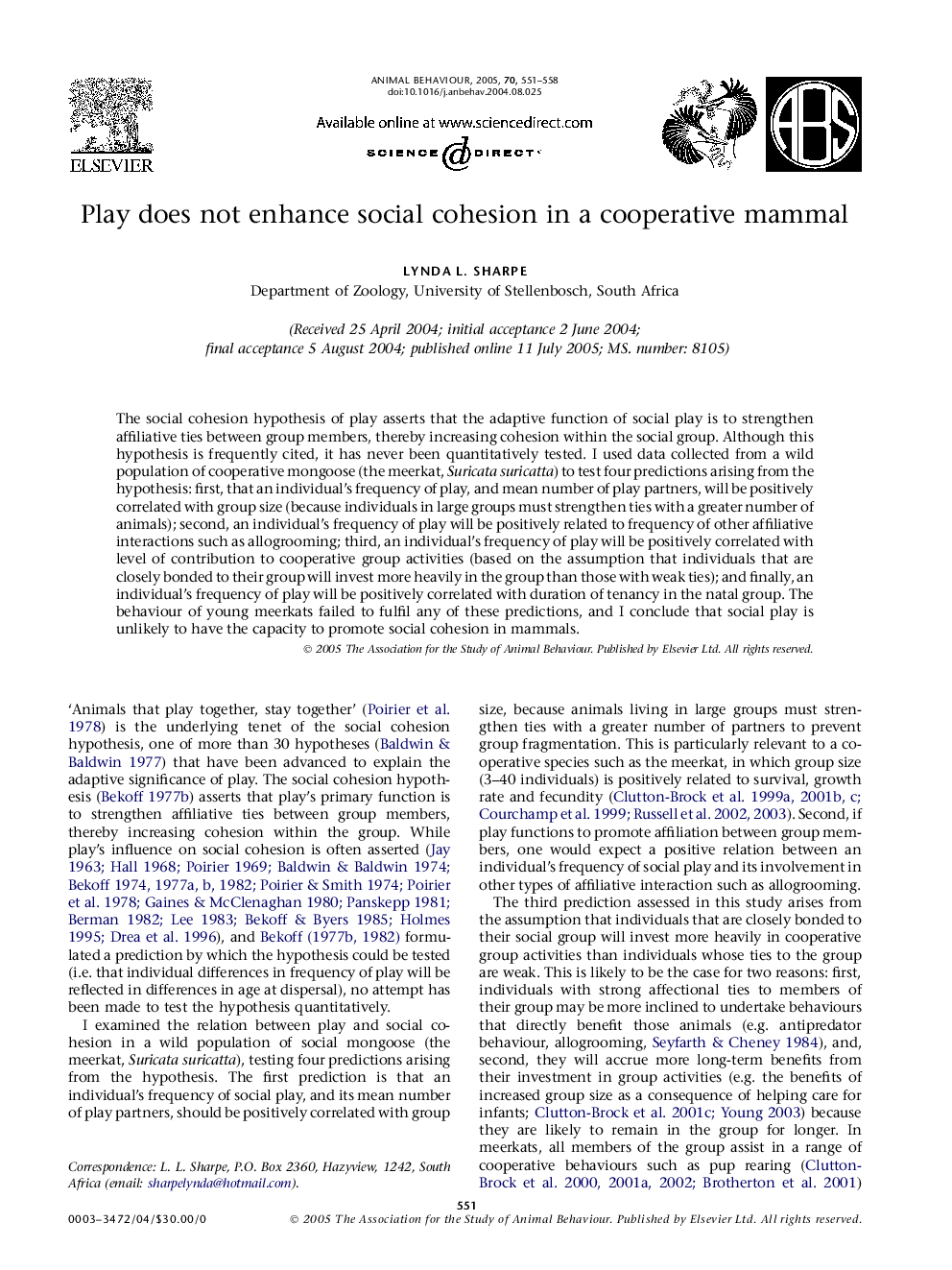| کد مقاله | کد نشریه | سال انتشار | مقاله انگلیسی | نسخه تمام متن |
|---|---|---|---|---|
| 8971928 | 1104371 | 2005 | 8 صفحه PDF | دانلود رایگان |
عنوان انگلیسی مقاله ISI
Play does not enhance social cohesion in a cooperative mammal
دانلود مقاله + سفارش ترجمه
دانلود مقاله ISI انگلیسی
رایگان برای ایرانیان
موضوعات مرتبط
علوم زیستی و بیوفناوری
علوم کشاورزی و بیولوژیک
علوم دامی و جانورشناسی
پیش نمایش صفحه اول مقاله

چکیده انگلیسی
The social cohesion hypothesis of play asserts that the adaptive function of social play is to strengthen affiliative ties between group members, thereby increasing cohesion within the social group. Although this hypothesis is frequently cited, it has never been quantitatively tested. I used data collected from a wild population of cooperative mongoose (the meerkat, Suricata suricatta) to test four predictions arising from the hypothesis: first, that an individual's frequency of play, and mean number of play partners, will be positively correlated with group size (because individuals in large groups must strengthen ties with a greater number of animals); second, an individual's frequency of play will be positively related to frequency of other affiliative interactions such as allogrooming; third, an individual's frequency of play will be positively correlated with level of contribution to cooperative group activities (based on the assumption that individuals that are closely bonded to their group will invest more heavily in the group than those with weak ties); and finally, an individual's frequency of play will be positively correlated with duration of tenancy in the natal group. The behaviour of young meerkats failed to fulfil any of these predictions, and I conclude that social play is unlikely to have the capacity to promote social cohesion in mammals.
ناشر
Database: Elsevier - ScienceDirect (ساینس دایرکت)
Journal: Animal Behaviour - Volume 70, Issue 3, September 2005, Pages 551-558
Journal: Animal Behaviour - Volume 70, Issue 3, September 2005, Pages 551-558
نویسندگان
Lynda L. Sharpe,